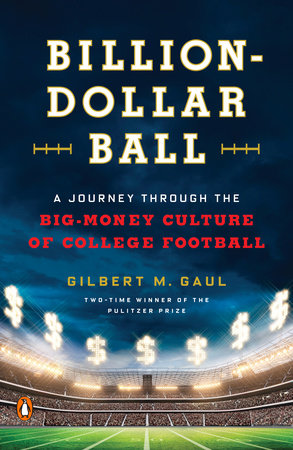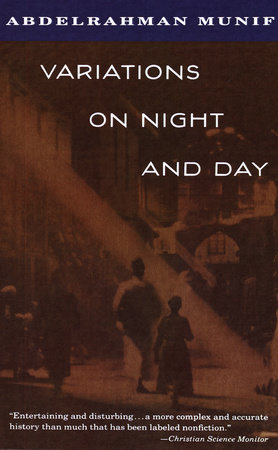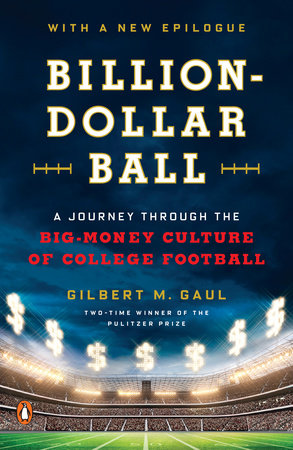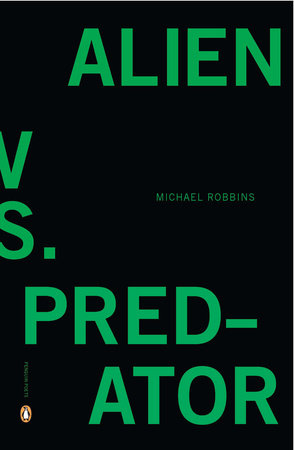

Billion-Dollar Ball
By Gilbert M. Gaul
By Gilbert M. Gaul
By Gilbert M. Gaul
By Gilbert M. Gaul

-
$18.00
Sep 06, 2016 | ISBN 9780143108634
-
Aug 25, 2015 | ISBN 9780698142916
YOU MAY ALSO LIKE

Disarmed

Walkman

Six Psychological Studies

Ask for a Convertible

The Gene Therapy Plan

Earthly Meditations

Reign of Snakes

The Alphabet Versus the Goddess

Variations on Night and Day
Praise
“College football is no longer just a game. Gilbert M. Gaul contends precisely that in his persuasive new book . . . . A penetrating examination of how the elite college football programs have become ‘giant entertainment businesses that happened to do a little education on the side.’”
—Mark Kram Jr., The New York Times
“Billion-Dollar Ball compels us to see . . . a moneymaking spectacle that ‘has challenged the notion of universities as places of learning and reflection.’ . . . [Gaul] casts a sober eye on the economic landscape of college football—the tax breaks, television deals and corporate sponsorships that create staggering revenues for powerhouse programs. . . . Gaul comes across like a bemused accountant trying to make sense of these absurd numbers. But occasionally, he’s more of a modern-day Twain, visiting college campuses and asking all sorts of people all sorts of questions.”
—Ihsan Taylor, New York Times Book Review
“A hard and challenging book, but one that I hope college football diehards will join me in reading. . . . When we cheer for our schools and our teams, we’re also supporting a powerful and autonomous entertainment business that monetizes every aspect of the game, an operation that is not only divorced from the mission of higher education but that often undermines it. . . . The book skillfully chronicles and quantifies the more mercenary aspects of the game that many fans have long avoided.”
—Carlos Lozada, The Washington Post
“Outside the United States, university is where you study. But for thousands of supersized American males, it is where you go to run into other men of similar proportions like particles in the Large Hadron Collider. . . . In recent years critics have accused American universities, which together earn $10 billion a year in athletic revenue, of exploiting an unpaid labour force. Moreover, numerous players have filed lawsuits demanding a piece of the pie. In Billion-Dollar Ball Gilbert Gaul, a journalist, eschews these criticisms in favour of a more fundamental angle of attack: that running such large entertainment businesses is incompatible with the core task of universities. . . . Mr. Gaul’s decision to shift the focus from the ‘narrative du jour’ of harm to players to the huge resources universities pour into football could conceivably provide a valuable contrarian perspective.”
—The Economist
“Innocents might wonder why a book on US college football—an amateur sport, they might think—belongs in a business books section. Americans, however, know it is a very big business, with a model, as Gilbert M Gaul explains in his meticulously researched and wickedly well-written volume, which any corporate mogul should learn and digest. . . . College football also reflects contemporary US society; not only do the rich get richer and the poor struggle to survive but the big football programmes are run totally independently of the universities they represent. College presidents joke about this but they have decided that a successful football team enhances the school’s brand. It is not unlike banks being too big to fail.”
—Jurek Martin, Financial Times
“Just as the college football season opens, investigative reporter Gilbert M. Gaul blows the whistle with Billion-Dollar Ball. . . .Thanks to television contracts, he says, football-power campuses are awash with cash, to the detriment of lesser schools, where student fees pay for sports. . . . Gaul notes that college athletics were originally designed to enhance the college experience for students, not to swell the coffers of big-power campuses. But as he tours big-power campuses like Texas, Alabama and Oregon, he muses that the lure of big-money has blindsided idealism.”
—Harry Levins, St. Louis Post-Dispatch
“Almost nobody is spared in Gilbert M. Gaul’s latest book, Billion-Dollar Ball. . . . [Gaul examines] how the revenue the successful teams bring in keeps growing—and how those dollars are spent: on ever-increasing coaches’ salaries, improved facilities (needed or not) and keeping athletes eligible in various ways from tutors to walkers (people paid to make sure the players go to class).”
—Roman Augustoviz, Minneapolis Star Tribune
“[Billion-Dollar Ball] details how elite gridiron programs have come to dominate the institutions they represent, distorting higher education’s supposed balance between athletics and academics. . . . Noting that elite football schools tend to tout their gridiron success more than their academic offerings, Gaul says college presidents have embraced big-time football as a branding mechanism and a lure for alumni and prospective students. For most schools, though, football’s a losing financial proposition, absorbing millions of dollars ‘that might otherwise be used for building a new lab or lowering tuition.’ . . . And Gaul puts the eye-popping financial figures he cites in thought-provoking perspective when he writes, ‘It is impossible to exaggerate how football dependent many of the largest, best-known universities have become.’”
—Alan Wallace, Pittsburgh Tribune-Review
“The two-time Pulitzer Prize-winning journalist turns his investigative eye on the big-time business of college football, where he says elite schools are monetizing the sport for record profits. Texas schools and the Big 12 are well-represented throughout, and former Notre Dame and Kansas coach Charlie Weis is singled out for being paid more than $23 million by the two schools not to coach.”
—Celeste Williams, Fort Worth Star-Telegram
“A commercial entertainment juggernaut has conquered academe, argues this incisive, acerbic exposé of Division I college football. . . . Gaul’s mix of shrewd financial analysis and colorful reportage makes for an engrossing account of America’s most sentimental yet mercenary sports culture.”
—Publishers Weekly (starred review)
“Gaul follows the money straight into the end zone, locker room, and alumni skybox. . . Gaul’s reporting is unassailable, but watch as his conclusions stir up a furor in the sports press. You don’t even have to hate football to find this book valuable—and certainly worth reading.”
—Kirkus Reviews
“With the depth and clarity that have defined his distinguished investigative reporting career, Gilbert Gaul takes readers on an enlightening if sobering tour of modern college football. What does a ‘walker’ do for players at Kansas? Why does Princeton have nearly twice as many varsity athletes as Texas? Billion-Dollar Ball not only has the answers, it raises the right questions.”
—David Maraniss, author of When Pride Still Mattered: A Life of Vince Lombardi
“Billion-Dollar Ball is really a book about piracy. Two time Pulitzer prize winner Gil Gaul exposes the schemes by which a small group of honchos have hijacked universities and diverted the profits of college sports which equal those of large corporations, into their own pockets without answering to anyone. It’s a ground-breaking work of reporting that cries out for a federal investigation.”
—Sally Jenkins, Washington Post columnist and author of The Real All Americans and The State of Jones
“With an uncanny combination of tenacious investigative reporting and effervescent prose, Gilbert Gaul has written an urgently important and immensely readable book. Even for a college football fan like me, Billion-Dollar Ball raises painfully disquieting questions.”
—Samuel G. Freedman, author of Breaking the Line and Letters to a Young Journalist
“This book is timely and important. Gil Gaul paints a devastating picture of the transformation of what once at least resembled a college sport into ‘an elaborately rich entertainment.’ The forces that have driven this evolution cannot be reversed by reforms from within. It is going to take some combination of the courts and federal legislators to force real change—and probably the dismemberment of the NCAA as we know it today. Things probably have to get worse before they can get better.”
—William G. Bowen, President emeritus of Princeton University and The Andrew W. Mellon Foundation
21 Books You’ve Been Meaning to Read
Just for joining you’ll get personalized recommendations on your dashboard daily and features only for members.
Find Out More Join Now Sign In










